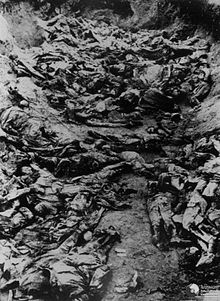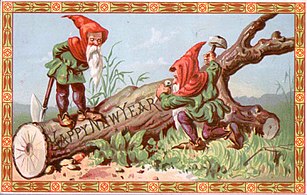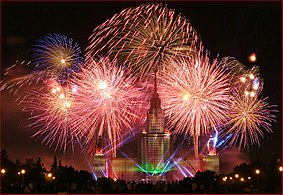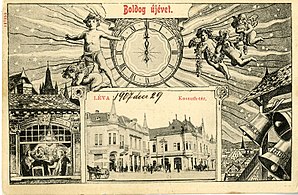| Revision as of 15:16, 22 January 2021 editDavide King (talk | contribs)Extended confirmed users104,111 editsm →Disambiguation link notification for January 19: fixed← Previous edit | Revision as of 17:47, 22 January 2021 edit undoLotteryGeek (talk | contribs)204 editsNo edit summaryNext edit → | ||
| Line 218: | Line 218: | ||
| (].) --] (]) 06:36, 19 January 2021 (UTC) | (].) --] (]) 06:36, 19 January 2021 (UTC) | ||
| : . ] (]) 15:16, 22 January 2021 (UTC) | : . ] (]) 15:16, 22 January 2021 (UTC) | ||
| == Michael Weirsky == | |||
| I started a draft about Michael Weirsky. Can you please make it a full article that is a good article or featured article, please? I would prefer it to be featured article. | |||
| https://en.wikipedia.org/Draft:Michael_Weirsky | |||
Revision as of 17:47, 22 January 2021
|
Archives | ||||
|
||||
|
This page has archives. Sections older than 45 days may be automatically archived by Lowercase sigmabot III when more than 3 sections are present. |
Talk:Libertarianism
| The contents of the User:Davide King page were merged into Talk:Libertarianism#Davide King's proposal. For the contribution history and old versions of the merged article please see its history. |
Amazing Patience

|
The Barnstar of Infinite Patience | |
| This barnstar is to award you for displaying a superpower level of infinite and invincible patience. |
December 2020
![]() You currently appear to be engaged in an edit war according to the reverts you have made on Template:Libertarianism in the United States sidebar; that means that you are repeatedly changing content back to how you think it should be, when you have seen that other editors disagree. Users are expected to collaborate with others, to avoid editing disruptively, and to try to reach a consensus, rather than repeatedly undoing other users' edits once it is known that there is a disagreement.
You currently appear to be engaged in an edit war according to the reverts you have made on Template:Libertarianism in the United States sidebar; that means that you are repeatedly changing content back to how you think it should be, when you have seen that other editors disagree. Users are expected to collaborate with others, to avoid editing disruptively, and to try to reach a consensus, rather than repeatedly undoing other users' edits once it is known that there is a disagreement.
Points to note:
- Edit warring is disruptive regardless of how many reverts you have made;
- Do not edit war even if you believe you are right.
If you find yourself in an editing dispute, use the article's talk page to discuss controversial changes and work towards a version that represents consensus among editors. You can post a request for help at an appropriate noticeboard or seek dispute resolution. In some cases, it may be appropriate to request temporary page protection. If you engage in an edit war, you may be blocked from editing. ― Tartan357 05:16, 11 December 2020 (UTC)
- Tartan357, but apparently the other users were not doing the same? There is no discussion on the talk page, but there is a dispute. The natural thing is to keep the status quo ante and reach consensus on the talk page. Once that is done, you are free to re-add them and I will not revert. Davide King (talk) 05:17, 11 December 2020 (UTC)
- Davide King, fine. I will note, though, that none of the other names have been discussed, either, so you're not reverting to a consensus-backed version so much as your preferred version. ― Tartan357 05:28, 11 December 2020 (UTC)
- Tartan357, they have been there in a long time and have not been reverted, so I am not reverting to my alleged "preferred version" but to the last stable one. Davide King (talk) 05:30, 11 December 2020 (UTC)
- Davide King, you're trying to tell me that you don't prefer that version? If that were the case, you wouldn't be arguing on the merits of the content in your edit summaries. ― Tartan357 05:33, 11 December 2020 (UTC)
- Tartan357, yes, I prefer that version because it avoids awkward formatting such as "Koch (Charles)" and because it already includes most of relevant people according to sources; your wording implied like I reverted just because I liked it, rather than disagreeing with the changes and the fact no discussion was opened on the talk page. Yes, the Koch brothers have donated for libertarian causes but I do not see how that makes it relevant in the libertarian movement; they may as well be added at conservatism US sidebar because they donated to Republican candidates. A compromise may be to add Koch brothers but I would argue they are more relevant to the conservatism US sidebar than here. Same reason why Milton Friedman is more relevant for conservatism US sidebar. Davide King (talk) 05:38, 11 December 2020 (UTC)
- Davide King, you're trying to tell me that you don't prefer that version? If that were the case, you wouldn't be arguing on the merits of the content in your edit summaries. ― Tartan357 05:33, 11 December 2020 (UTC)
- Tartan357, they have been there in a long time and have not been reverted, so I am not reverting to my alleged "preferred version" but to the last stable one. Davide King (talk) 05:30, 11 December 2020 (UTC)
- Davide King, fine. I will note, though, that none of the other names have been discussed, either, so you're not reverting to a consensus-backed version so much as your preferred version. ― Tartan357 05:28, 11 December 2020 (UTC)
Nomination of Benjamin Valentino for deletion
A discussion is taking place as to whether the article Benjamin Valentino is suitable for inclusion in Misplaced Pages according to Misplaced Pages's policies and guidelines or whether it should be deleted.
The article will be discussed at Misplaced Pages:Articles for deletion/Benjamin Valentino until a consensus is reached, and anyone, including you, is welcome to contribute to the discussion. The nomination will explain the policies and guidelines which are of concern. The discussion focuses on high-quality evidence and our policies and guidelines.
Users may edit the article during the discussion, including to improve the article to address concerns raised in the discussion. However, do not remove the article-for-deletion notice from the top of the article. Nug (talk) 21:55, 13 December 2020 (UTC)
Venezuela
I am replying to you here, because it is tangential to the discussion at ML. Venezuela could decide to use central planning with state owned secondary industry and collectivization as part of a strategy for industrialization and food self-sufficiency if sanctions continue against them. TFD (talk) 12:39, 16 December 2020 (UTC)
- The Four Deuces, that is very interesting, including your comments at Talk:Marxism–Leninism. Is there a way, or place, where we could discuss this (I tried to send you a few emails, but I do not know if that was the right way.)? You seem to be very knowledgeable and I would love to better understand the mainstream, minority and fringe views on a given topic. Davide King (talk) 06:49, 25 December 2020 (UTC)
Why did you remove sourced text relating to Marxist-Leninism imperialism and a mass grave image.

I don't understand your issue, you state there is no consensus on it however the text was removed multiple times by other editors as well as this it's not the stable version. What exactly is your issue with the edit? It is completely well sourced as well as the edit was reverted multiple times by various editors, it is complete POV text, its a worrying pattern. Vallee01 (talk) 05:37, 24 December 2020 (UTC)
- Vallee01, that sentence was also worked over by Asarlaí, so there is consensus apart from you, who also removed "and the bourgeoisie" which Asarlaí re-added. Regarding this, as stated in the summary, that image is already at Mass killings under communist regimes, where it is appropriate; and it is a vastly oversimplification of the section. In addition, as noted by Czar at Anarchism "llustrations shouldn't be decorative. It's perfectly fine for sections to not have illustrations." The image needs to summarise the paragraph and that is an oversimplification of the whole section, which is not about atrocities but an analysis. As for this, it is not lead-worthy as it does not represent consensus among scholarly sources, it is simply a left-wing view, which I happen to support, but it cannot be stated as fact. Many anti-communist scholars thought the Soviet Union was socialist because it was bad. You again ignore that the same scholars who you support for emphasising the atrocities, they actually say the Soviet Union et al. were socialists (I obviously disagree); you can not have it both ways. Davide King (talk) 06:22, 24 December 2020 (UTC)
- You are also removing images of Soviet massacres, the image reinforces this section right here.
- "Marxist–Leninist regimes have carried out mass repression and mass killing of political dissidents and social classes (so-called 'enemies of the people') such as the Red Terror and Great Purge in the Soviet Union and the Campaign to Suppress Counterrevolutionaries in China. According to Daniel Gray, Silvio Pons and David Martin Walker, these were partly a result of Marxist–Leninist ideology and justified as a means of maintaining 'proletarian power.'"
So you removed correctly cited information and you removed a sample image of a Soviet mass grave for a section on Soviet killings. Why? Genuinely, you state it has nothing to do with the section but the section is directly about Soviet and NKVD killings. The section is directly about Soviet massacres yet you state it has "nothing do with the article." Vallee01 (talk) 06:28, 24 December 2020 (UTC)
- Vallee01, the section is about analysis, not atrocities; and the ideology was the state ideology of one third of the world, but you continue to treat it as it was only the Stalin era. That is simply a paragraph, you cannot just ignore the other four-plus paragraphs; this is not related only to this, you have an habit to add too many images, not all of which are a good summary of the section, as is in this case. Davide King (talk) 06:33, 24 December 2020 (UTC)
- Davide King For gods sake its a section about mass killings in the USSR, the image is of a mass killing in the USSR. The Image is on a section about the Stalin Era, so either the section about Stalin shouldn't be there or images relating to it should. The image is meant to be a visualization of that paragraph not the entire section. It seems you are simply reverting properly cited information and relevant information because you don't like the information present. Vallee01 (talk) 06:51, 24 December 2020 (UTC)
- Vallee01, the section means the whole section, not just one paragraph.
- "Philosopher Eric Voegelin sees Marxism–Leninism as inherently oppressive, arguing that the "Marxian vision dictated the Stalinist outcome not because the communist utopia was inevitable but because it was impossible." Criticism like this has itself been criticised for philosophical determinism, i.e. that the negative events in the movement's history were predetermined by their convictions, with historian Robert Vincent Daniels arguing that Marxism was used to "justify Stalinism, but it was no longer allowed to serve either as a policy directive or an explanation of reality" during Stalin's rule. In contrast, E. Van Ree argues that Stalin considered himself to be in "general agreement" with the classical works of Marxism until his death. Graeme Gill argues that Stalinism was "not a natural flow-on of earlier developments; sharp break resulting from conscious decisions by leading political actors." However, Gill notes that "difficulties with the use of the term reflect problems with the concept of Stalinism itself. The major difficulty is a lack of agreement about what should constitute Stalinism." Historians such as Michael Geyer and Sheila Fitzpatrick criticize the focus upon the upper levels of society and the use of Cold War concepts such as totalitarianism which have obscured the reality of Marxist–Leninist systems such as that of the Soviet Union.
- Marxist–Leninists respond there was generally no unemployment in Marxist–Leninist states and most citizens were guaranteed housing, schooling, healthcare and public transport at little or no cost. In his critical analysis of Marxist–Leninist states, Ellman notes that they compared favorably with Western states in some health indicators such as infant mortality and life expectancy. Philipp Ther posits that there was a rise in living standards throughout Eastern Bloc countries as the result of modernisation programs under Marxist–Leninist governments. Sen found that several Marxist–Leninist states made significant gains in life expectancy and commented "one thought that is bound to occur is that communism is good for poverty removal." Olivia Ball and Paul Gready report that Marxist–Leninist states pressed Western governments to include economic rights in the Universal Declaration of Human Rights. Others such as Michael Parenti state that Marxist–Leninist states experienced greater economic development than they would have otherwise, or that their leaders were forced to take harsh measures to defend their countries against the Western Bloc during the Cold War. Parenti also argues that accounts of political repression are exaggerated by anti-communists and that communist party rule provided some human rights such as economic, social and cultural rights not found under capitalist states, including the rights that everyone is treated equal regardless of education or financial stability; that any citizen can keep a job; or that there is a more efficient and equal distribution of resources. David L. Hoffmann argues that many forms of state interventionism used by Marxist–Leninist governments, including social cataloging, surveillance and internment camps, pre-dated the Soviet regime and originated outside Russia. Hoffman further argues that technologies of social intervention developed together with the work of 19th-century European reformers and were greatly expanded during World War I, when state actors in all the combatant countries dramatically increased efforts to mobilize and control their populations. As the Soviet state was born at this moment of total war, it institutionalised state intervention as permanent features of governance.
- Writing for The Guardian, Seumas Milne states the result of the post–Cold War narrative that Stalin and Hitler were twin evils, therefore communism is as monstrous as Nazism, "has been to relativize the unique crimes of Nazism, bury those of colonialism and feed the idea that any attempt at radical social change will always lead to suffering, killing and failure." Other leftists, including some Marxist–Leninists, apply self-criticism and have at times criticised Marxist–Leninist praxis and some actions by Marxist–Leninist governments while acknowledging its advancements, emancipatory acts such as their support of labor rights, women's rights and anti-imperialism, democratic efforts, egalitarian achievements, modernisation, the creation of mass social programs for education, health, housing and jobs, the increase of living standards and for fostering "national self-determination, economic betterment, the preservation of health and human life, and the end of many of the worst forms of ethnic, patriarchal, and class oppression."
- Did you miss all this? Davide King (talk) 06:55, 24 December 2020 (UTC)
- Davide King You understand the image is supposed to be a visualization of a single paragraph not the entire section correct? We do this for every single article, seriously what an extremely strange response. Really we do this for every single article your argument is "The image is a good description for a single paragraph but not the entire section." It's not supposed to be, every single article with images have images for paragraph. Vallee01 (talk) 07:08, 24 December 2020 (UTC)
- Then why do it only for the paragraphs about atrocities and not the others? As noted by Czar, "t's perfectly fine for sections to not have illustrations." We have Mass killings under communist regimes for that; Marxism–Leninism is about the ideology. We are supposed to have only one clear main topic per article, otherwise it is a content fork. Davide King (talk) 07:12, 24 December 2020 (UTC)
- The usual reason we don't have images for articles is because we lack them, its a section about atrocities and ethnic cleansing committed by the NKVD, its directly related to the paragraph. What does this have literally anything to do with content forks? Do you have an issue with the image being a visualization for ethnic cleansing. "Then why do it only for the paragraphs about atrocities and not the others" because I don't have other images. So its a good visualization you just feel as though there aren't other images present therefor we shouldn't add them? Vallee01 (talk) 07:24, 24 December 2020 (UTC)
- Then why do it only for the paragraphs about atrocities and not the others? As noted by Czar, "t's perfectly fine for sections to not have illustrations." We have Mass killings under communist regimes for that; Marxism–Leninism is about the ideology. We are supposed to have only one clear main topic per article, otherwise it is a content fork. Davide King (talk) 07:12, 24 December 2020 (UTC)
- Davide King You understand the image is supposed to be a visualization of a single paragraph not the entire section correct? We do this for every single article, seriously what an extremely strange response. Really we do this for every single article your argument is "The image is a good description for a single paragraph but not the entire section." It's not supposed to be, every single article with images have images for paragraph. Vallee01 (talk) 07:08, 24 December 2020 (UTC)
- Davide King For gods sake its a section about mass killings in the USSR, the image is of a mass killing in the USSR. The Image is on a section about the Stalin Era, so either the section about Stalin shouldn't be there or images relating to it should. The image is meant to be a visualization of that paragraph not the entire section. It seems you are simply reverting properly cited information and relevant information because you don't like the information present. Vallee01 (talk) 06:51, 24 December 2020 (UTC)
Notetag material moved to end breaks template....
Regarding trumpism article edit, I tried to move the Note Text to the end as you did, but got exactly what you got- red Text failures of the template to resolve sfn generated footnote references. J JMesserly (talk) 05:44, 24 December 2020 (UTC)
- J JMesserly, so that is why not all notes were at the end? It is weird though, I hope it can be fixed. Davide King (talk) 05:59, 24 December 2020 (UTC)
- Yep. I jumped through several hoops trying to get it to work in the form we both prefer- as a remote reference, but I gave up and left it inline. Maybe the template author could be notified, giving your edit as an example of the problem. It might be a very difficult problem to solve, but who knows. BTW- Merry Christmas from NZ. J JMesserly (talk) 07:44, 25 December 2020 (UTC)
- Started a thread for you:
 Help talk:Citation Style 1#sfn in list-defined notes (I couldn't figure it out either) czar 19:24, 25 December 2020 (UTC)
Help talk:Citation Style 1#sfn in list-defined notes (I couldn't figure it out either) czar 19:24, 25 December 2020 (UTC)
- Started a thread for you:
- Yep. I jumped through several hoops trying to get it to work in the form we both prefer- as a remote reference, but I gave up and left it inline. Maybe the template author could be notified, giving your edit as an example of the problem. It might be a very difficult problem to solve, but who knows. BTW- Merry Christmas from NZ. J JMesserly (talk) 07:44, 25 December 2020 (UTC)
Disambiguation link notification for December 24
An automated process has detected that when you recently edited Far-right politics, you added a link pointing to the disambiguation page John Birch.
(Opt-out instructions.) --DPL bot (talk) 06:29, 24 December 2020 (UTC)
December 2020: Please cite a source for your changes to Misplaced Pages
![]() Hello, I'm Quisqualis. I noticed that you added or changed content in an article, but you didn't provide a reliable source. It's been removed and archived in the page history for now, but if you'd like to include a citation and re-add it, please do so. You can have a look at the tutorial on citing sources. If you think I made a mistake, you can leave me a message on my talk page. Thank you. --Quisqualis (talk) 20:29, 24 December 2020 (UTC)
Hello, I'm Quisqualis. I noticed that you added or changed content in an article, but you didn't provide a reliable source. It's been removed and archived in the page history for now, but if you'd like to include a citation and re-add it, please do so. You can have a look at the tutorial on citing sources. If you think I made a mistake, you can leave me a message on my talk page. Thank you. --Quisqualis (talk) 20:29, 24 December 2020 (UTC)
- Quisqualis, what are you talking about? I simply took it from Results, which is referenced. Davide King (talk) 06:36, 25 December 2020 (UTC)
- Note that, in the first place, Misplaced Pages is not considered to be a reliable source, and that any random person can make changes, not always constructively. If you can locate the source used for that article's figures, you only need cite it once, for the first figure. Not trying to force you through hoops, just protecting WP.--Quisqualis (talk) 14:57, 25 December 2020 (UTC)
Disambiguation link notification for December 31
An automated process has detected that you recently added links to disambiguation pages.
- Domenico Losurdo
- added a link pointing to Far West
- Totalitarianism
- added a link pointing to Comparative analysis
(Opt-out instructions.) --DPL bot (talk) 06:20, 31 December 2020 (UTC)
Happy New Year
| Happy New Year 2021 I hope your New Year holiday is enjoyable and the coming year is much better than the one we are leaving behind. Best wishes from Los Angeles. // Timothy :: talk |
Happy New Year!




Thanks for your contributions to Misplaced Pages, and a Happy New Year to you and yours! Jmill1806 (talk) 00:05, 1 January 2021 (UTC)
- – Send New Year cheer by adding {{subst:Happy New Year}} to user talk pages.
History of communism
Czar, the problem is I am not sure from where to start or how to improve it. Should History of communism be about the whole history of the communist movement, including anarcho-communism, council communists, left communists and other libertarian and dissident, anti-Leninists and/or anti-Stalinist communists? Or should it be only about Communism, i.e. Communist states? I think it should be the former and that the latter can be discussed at History of Communist states. The problem is the currently-structured article is mainly about Communist states and Marxism–Leninism. Are really most books about the history of communism not giving any space to the aferomentioned libertarian communists and other dissident communisms? Because that article currently only discusses Trotskyism as dissident communism. Honestly, I wish you could make a draft of that article, rewriting it in the style of Anarchism, i.e. only using secondary and tertiary sources, and mainly general ones to establish weight and due.
What I can do is help with copy-editing and going from there but I usually need a draft or some sources to follow. I wish you would write more articles, rather than just giving already outstanding mediations, proposals and suggestions, because you can actually write good articles that respect our policy and guidelines, especially original research, synthesis and respecting weight, which in my view is something that is clearly outstanding since often times these guidelines are violated. In short, articles need to follow the literature. In practice, most articles are simply sourced to a series of unconnected books that are likely undue, if they are not cited, mentioned or discusses in general sources that establish the literature.
Or am I having a too stringent view of our policies and guidelines? Most good and featured articles I have seen have general sources or a clear literature that is used and followed, rather than using any article or book mentioning the topic, whether it is due or not. Davide King (talk) 03:25, 2 January 2021 (UTC)
Moved to keep the original thread on topic
I intended to write more articles over my break (except on topics I've already researched) but I've been doing more replying lately ;) Scope of History of communism is a good question for its talk page (or Talk:Communism if its talk page is dead), but not sure it needs discussion—on its face, the article's structure seems fine to me. I wanted a gut check, I would compare its structure with the table of contents from other major histories and encyclopedia articles on the specific subject. It should be the history of communism (as defined at communism) in broad strokes, so mainly about the ML thread since the Russian Revolution. It should give a high-level overview of how the era developed, the major events, and the transitions. This would include ideological developments (majority and, if relevant, prominent minority) as pertains to each section. All other detail belongs in the respective articles. Coverage is proportionate, so no, if libertarian and dissident communisms aren't necessary for understanding Stalinism in two paragraphs, it shouldn't be included there. For those who want a history of libertarian communism, we have (too many) other articles for that. I also wouldn't break out a specific history of Communist states as Communist state has no History section. All in all, consider history of Communism your draft. Add sources where there are none and keep it high-level. Merge in history from this article and elsewhere where important. There is some merit the point that Misplaced Pages is largely written in piecemeal and collecting crumbs from random editors rather makes for a satisfying, thorough read on an intricate topic. Sometimes it's better to rip out an existing section and rewrite it from the gold standard history book vs. random citations. The issues you mention are surmountable—it's just a matter of putting in the time writing, writing, and rewriting. There's a reason why these top-level articles are neglected: They take months of work to get their breadth right, so it's a serious dedication of time/effort. czar 04:53, 2 January 2021 (UTC)
- And by the way, linking a username sends a ping when the same post is signed with your signature. You don't need to ping me when you quote me on the same talk page. In general, editors only need pings when they would want to be apprised of how their words are being used. In this case I'm not watching the ML page on purpose—it's not a discussion I'm looking to follow. czar 22:51, 2 January 2021 (UTC)
Disambiguation link notification for January 11
An automated process has detected that when you recently edited 2020 United States Senate elections, you added a link pointing to the disambiguation page 2021 Georgia runoff election.
(Opt-out instructions.) --DPL bot (talk) 06:14, 11 January 2021 (UTC)
Anti-fascism template
Just wanted to send a huge thank you for sorting out the formatting for this template, as I really struggled with it. Looks much better now. Really appreciate it. BobFromBrockley (talk) 11:48, 11 January 2021 (UTC)
RE: Misplaced Pages:Administrators' noticeboard/Incidents (comment)
From here.
- On the equivalency between Communism and Nazism
Regarding this, you are free to hold whatever beliefs you want; you are not free of making such accusations or borderline personal attacks. You are essentially taking Courtois' view of equivalency between class and racial genocide but you cannot use that to ban one user. You are also essentially stating that as fact, when even Sémelin describes it as a theory. I agree with RandomGnome that, as they wrote here, "pplying NONAZIS to BunnyyHop by attempting to create a moral equivalency to his 'extreme political views' and using that argument as a cudgel is inappropriate, and equates to the slippery slope I mentioned earlier." What are the proofs that BunnyyHop advocate class genocide? The Black Ribbon Day is a political decision, which I respect, rather than representing scholarly consensus on the equivalency between the two. Either way, you misunderstood my point.
In regards to "laim by David King that liberalism advocates the same is absurd shows that he does not understand this subject" is false and close to a personal attack. It also completely misses the point that colonialism, imperialism, racism and slavery were justified under capitalist or liberal principles. Do you deny the atrocities in the Congo Free State, mass killings under colonial regimes and the link between colonialism and genocide throughout the history of capitalism? I am simply consistent in opposing Nazism, Stalinism and colonialism et al. This is the double standard. There is no Victims of Colonialism Memorial or declarations condemning capitalist imperialism. By applying your own logic that we must ban an user because Communism resulted in atrocities, it is no different than advocating ban of conservatives, liberals and many other ideologies' users who were also guilty of atrocities. After all, Nazi Germany and fascist regimes were still capitalist regimes, in spite of some right-wing revisionists authors attempt to label them as left-wing or socialist. One could just as easily put the death toll of Communist states to capitalism, as in practice they were state-capitalist regimes with administrative-command economies rather than socialist planned ones. This is just a slippery and a reductio ad absurdum just to show ... how slippery slope and reductio ad absurdum your comment and proposal was in the first place.
- On Marxism–Leninism
In regard to this, I believe Czar has been pretty clear here, "ML is a floating signifier. To this bleary-eyed, third-opinion reader, there is no single reducible definition that applies to all of the ways it's invoked. Our article appears to jumble these different meanings into an invented, contiguous whole." In other words, that "Marxism–Leninism underwent several revisions and adaptations such as Guevarism, Ho Chi Minh Thought, Hoxhaism, Maoism, socialism with Chinese characteristics and Titoism", which incidentally I myself written before Czar's comment, "is all well sourced on the page" does not mean much if it is original research and/or synthesis, as it seems to be the case here.
"However, based on you comments, I can see that you guys are not familiar with the subject. This is fine. None of us is an expert in this. Unless, you POV-push the subject, as you apparently do." You should really stop making aspersions such as this. Perhaps you are the one who is doing this, as Czar's comment on the topic shows you are one who is not faimilar with the subject or is pusing a POV that it is a "contiquos whole." We should follow the scholarly literature on Marxism–Leninism, not our own POVs.
Regards, Davide King (talk) 04:30, 5 January 2021 (UTC)
- So, do you agree that discrimination and extermination of people for ideological reasons is bad, regardless to "justification"? It could be because they belong to a different "race", because they "immigrants, because they belong to another social group (speaking Russian, "miroedy"), or whatever. There are many different reasons for discrimination. Does it really matter what was the stated "reason" for the hatred and a hate crime? Was Red Terror any different from other hate crimes? Yes, it was actually worse because it was state-sanctioned and because it was based on the Leninist ideology. Would not you agree with this? My very best wishes (talk) 04:48, 5 January 2021 (UTC)
- First of all, thanks for your response. Yes, of course I agree but I do not think this answers my point. All ideologies have been tainted with atrocities and hate crimes. So that liberals like Locke justified slavery and communists like Stalin justified repression through "aggravation of the class struggle along with the development of socialism" is bad. Some hate crimes have been worse than others but are still hate crimes. The difference is that some ideologies do not actually call for hate crimes, and even in some cases they were directly against the ideology itself, they happened anyway. On the other hand, there are quite a few of ideologies such as Nazism who could be rightly called hate ideologies. One cannot discuss the Red Terror without also discussing the White Terror and vice versa, as they did not happen in a vacuum. I think you are being too idealistic in not considering the background that lead to the events as well as giving too much weight to ideology. Benjamin Valentino says that mass killing occurs "when powerful groups come to believe it is the best available means to accomplish certain radical goals, counter specific types of threats, or solve difficult military problem." It simply cannot be reduced to ideology alone.
- Regarding this. I checked the page and it says "xamples of such groups can include, and are almost exclusively limited to sex, ethnicity, disability, language, nationality, physical appearance, religion, gender identity or sexual orientation." Social class was only mentioned in "Victims in the United States" as African-Americans were victims of violence and threat of violence, although African Americans are an ethnic group, not a social group as the wording states. Courtois is a controversial academic and Sémelin describes "a sort of parallel between racial enemies and class enemies" as a "theory", not as a fact as you imply. You seem to confuse the events, which are facts, with the interpretations of them, which are theory. So mass killings by Communist states is a fact, but mass killings under Communist regimes, i.e. lumping together all Communist regimes and finding a commonality, is a proposed concept, not different from mass killings by Christian nations, or Genocide in Muslim countries.
- As noted by The Four Deuces here, "we cannot create articles that group unconnected events. We need to establish why why these events are connected using reliable sources. For example, the Holocaust and genocide against indigenous peoples in the U.S. were carried out by Christians. But if we want an article called Christian genocide, we need sources that draw the connection and explain the degree of acceptance in reliable sources. Otherwise it is just propaganda, listing crimes committed by Christians with the implication that Christianity is a genocidal religion. And the same applies to Islam. This is the only mass killings article that groups the killings by ideology. It could be as the VOC Memorial Foundation says, that 'Marxist socialism is the deadliest ideology in history.' But it is not our role to promote their views, but to explain them in a neutral manner."
- In regard to this, you again take the opinion of some scholars as fact or consensus. Even if I agree with you, we do not describe it as "pseudoscience", or say "Stalinism is a pseudoscience." We say "Stalinism is the means of governing and policies which were implemented in the Soviet Union from 1927 to 1953 by Joseph Stalin." You say "liberalism does not incite violence but its history says otherwise. Even socialism and other mainstream, or within the Overtow window, do not incite violence but atrocities and violence have nonetheless happened and in several cases were justified through ideology. You are indeed applying a double standard in that you posit liberalism has not also resulted in atrocities, even though Locke justified slavery on liberal slavery, slavery was both justified (property rights) and non-justified (hideous blot) on liberal grounds, colonialism and imperialism were both justified on liberal principles and racism is what it is today because it was used to justify the subjugation of people to expand capital overseas. Was Chile under Pinochet not true economic liberalism?
- Why do you apply double standards? I made the examples of liberalism but I could have also made examples of conservatism and nationalism. Neither communism nor socialism advocate hate crimes, that does not mean violence has not been committed, but they are hardly the only two ideologies. You may seem to think they advocate hate crimes but that is not a fact and it is a opinion; you may think that Stalinism is the natural and inevitable result of communism and/or socialism, even though there have been democratic and respected socialists; there simply cannot be a democratic and respected fascism, it is a contradiction in terms. Scholars still debate whether Stalinism was the natural and inevitable results of Leninism but you take it as fact and you take one side of historiography, when the field is so politicised and controversial, and you cannot dismiss scholars disagreeing with this as "apologists" or calling them names.
- Indeed, my main problem with Conquest, Courtois et al. is not the facts or the events but the interpretation they give to some or them, or that they seem to make no difference between communism, or socialism, with Stalinism (if they do make a difference, it should be clarified), or in the case of Courtois, that they advocate equivalency between Communism and Nazism, which is a controversial position, perhaps not in Eastern Europe but elsewhere it is, whether you like it or not. In general, these scholars make a too much idealistic and "Big Man"-interpretation and is why I favour other scholars. You favour these other scholars and is fine; what is not fine is acting like these are the be-all and end-all. Davide King (talk) 22:55, 5 January 2021 (UTC)
- Based on your responses and main space edits, you are promoting works by revisionist historians in WP (like here, note that all these revisionist historians were already mentioned prior to your edit, you duplicated advertisement of their views on the page), and you also believe that the communist terror was nothing special. This is simply not true, just as many of your comments above. No, their terror was extreme and ideology-driven, just as crimes by Nazi, exactly as many scholars say. No, one can not compare crimes against humanity by Stalin with any deeds by Locke. No, Pinochet was not a liberal. No, Jesus Christ did not incite violence, quite the opposite. Lenin and Stalin not only incited, but actually performed violence of enormous scale. No, it is actually a matter of fact that practically all communist regimes conducted mass repressions. And so on. Sorry, but I think my ANI comments were clear enough and precisely on the subject. My very best wishes (talk) 02:29, 6 January 2021 (UTC)
- If you do not have anything else to add, I would like to close this discussion you started. My very best wishes (talk) 19:54, 6 January 2021 (UTC)
I am restoring this here, if you do not mind. I do not want to cause you any trouble and I agree we are free to agree to disagree but I had to respond because you either clearly misunderstood or strawmanned, as you took some points and implications I never made or meant the way you interpretated my words, especially as I am pro-European Union and anti-Putin. Regarding this, you strawmanned me. Ironically, you are the one supporting the equivalency between Communism and Nazism but this is a "revisionist" view; it may now be legitimised by the European Union and other Western governments but it is a political decision that do not represent scholarly consensus (indeed, one of the main academic criticisim of The Black Book of Communism is exactly the equivalency between Communism and Nazism). This is Holocaust trivialisation at best and denialism at worse.
Davide King (talk) 06:10, 12 January 2021 (UTC)
- On Locke, or how I was not comparing them as equally bad, just as bad; unlike you, I am not making a race on who killed more or who was worse
Apparently, how does simply being consistent in opposing capitalist, Nazi, Soviet and any other group or nation's crimes entails to "liberal philosopher John Locke being just as bad as Lenin and Stalin"? I merely stated "liberals like Locke justified slavery and communists like Stalin justified repression through "aggravation of the class struggle along with the development of socialism" is bad", which is not the same thing as saying that they are equally bad (if I wanted to mean what you think I implied, I would have stated equally bad, which I did not). I was simply showing that no ideology is pure. Just like rejecting the equivalency claim between Communism and Nazism entails being an apologist for Stalinism. One does not need to engage in Holocaust trivialisation for condemmding atrocities and killings under Communist states. I actually condemn them more because I need not to engage in Holocaust trivialisation, "Holocaust revisionism", or supporting the double genocide theory, to do that. Davide King (talk) 06:10, 12 January 2021 (UTC)
- On Pinochet, Jesus and Marx
As for Pinochet, who he was to you? He promoted economic liberalism and to do that the dictatorship engaged in atrocities. What do you even disagree about this? Liberalism is not just political democracy; indeed, many liberals like Locke and in the United States justified slavery on liberal and propertarian grounds while progressive liberals did not. Some liberals did not even support political democracy, only the progressive liberals supported the universalisation of fundamental institutions such as universal suffrage, universal education and the expansion of property rights, see Kirchner 1988, pp. 2–3. I say this as a progressive liberal, not as an anti-liberal.
Jesus Christ may have not incited violence but Christians have indeed committed atrocities in his name. I do not see why you do not apply the same standard to Marx, who called on workers they can achieve their goals by peaceful means, later in their life were more open to democratic participation in the parliament and many democrats such as Bernstein, Kautsky and Luxembourg, among others, were Marxists. Ironically, you are pushing Stalinist propaganda that these Marxists were "revisionists" and "not true Marxists." There is so much more too. Davide King (talk) 06:10, 12 January 2021 (UTC)
- On Red Terror, totalitarianism and revisionism
As for the Red Terror, whose higher estimates are 200,000, how can you say I believe it was "nothing special"? You really need to stop making insinuation and implication I never made. Does wanting to put the events in context entails to do that? Was the White Terror, resulting in 100,000–300,000 deaths, "nothing special" too for you?
"Lenin and Stalin not only incited, but actually performed violence of enormous scale. No, it is actually a matter of fact that practically all communist regimes conducted mass repressions." And who denied any of this? I actually agree, so I do not see what is your point. It just seems you do not seem to apply the same standard to the White Terror, or that the terror of Pinochet was just as ideologically-driven as the others, nor did I compare Locke to Stalin's crimes; my point was that both communism and liberalism, like any other ideology, have been used to support atrocities and bad things. As for my additions, I do not see what is the problem. Arendt, Benjamin and other supporters of the totalitarian were also mentioned in the body but I added them too, not just the "revisionists", so your claim is false. Your source are no better; you keep stating as fact Leninism is pseudoscience, even though we do not refer to it as fact and [https://scholar.google.com/scholar?start=0&q=%22Leninism+Political+Economy+as+Pseudoscience%22
Again, you need to stop using "revisionist" as an insult; these are all legitimate historians and scholars, we are not talking about the "fringe" here, so I do not understand what is your problem with these legitimate scholars. I agree with Newimpartial's comment here that "any summary of the revisionist debates as 'Robert Conquest wins and his opponents are all FRINGE' is not a very accurate statement concerning reality as we know it." You seem to take this false summary as fact; you seem to completely ignore how this is one of the more conflictual, controversial and politicised field in academia, hence why I support presenting all relevent views per NPOV (also respecting due weight and avoid false balance) while you seem to support only one side. Davide King (talk) 06:10, 12 January 2021 (UTC)
- Mass killings under communist regimes
As for mass killings, I literally explained the difference between the events, which are a fact; and the category (the lumping together, which not all scholars agree and the very few who actually do, they do not represent consensus), which is a proposed concept. You are free to disagree with this distinction but you need to stop implying I am a "revisionist" or using it like a candy or pejorative term. Mass killing is also a concept to describe or define incidents of non-combat killing by government or state; this does not mean mass killings did not actually happen. The main topic is supposed to be a link between communism and mass killing, rather than a list of atrocities by Communist states. Valentino states "Communism has a bloody record, but most regimes that have described themselves as communist or have been described as such by others have not engaged in mass killing. In addition to shedding light on why some communist states have been among the most violent regimes in history, therefore, I also seek to explain why other communist countries have avoided this level of violence." In other words, Communist regimes are not lumped together; the more common grouping is Stalin, Mao and Pol Pot (some such as Rosefielde adds Kim and Ho Chi Min) and no source discuss them all together; the few ones who do (Courtois and Rummel) are not about mass killing but about equivalency between Communism and Nazism (Courtois) and mass killing in general (Rummel) and both are problematic and controversial.
Even The Black Book of Communism "only presents a number of chapters on single country studies, it presents no cross-cultural comparison, there is no discussion of 'Mass killing in Communism'" and the introduction is more about "the evils of Communism in general" than any specific link between the two. We already discuss all the events in individual articles and most of them are not described as a mass killing, or a mass killing under a Communist regimes, because historians of Communisms and country experts do not describe the events as such. Even Conquest "did not write about mass killings under Communist regimes, he wrote about the Red terror, the Holodomor and the Great purge in the Soviet Union. He treated these as separate subjects and did not develop a theory of mass killings under Communist regimes. We should not put together a group of events and create an article when no one else has." That is why the currently-structured article is synthesis; we need a link. The reason why we do not have similar articles, even though we could synthetised the events about capitalist, Christian, fascist, Muslims, etc. regimes like we do for Communism ("We could have an article called mass killings under fascist regimes and include the Holocaust, Ethiopia, Spain and Argentina. The reason I would not create one is not that I am pro-fascist, but I would need a source that linked them to fascist ideology. Arguments such as we have to tell people how horrible fascists aren't part of policy and all the events in such article already are described in other articles."), is that we need consensus among sources that link them to communist ideology.
As pointed out by The Four Deuces "and was agreed in the AfD discussions, we cannot create articles that group unconnected events. We need to establish why why these events are connected using reliable sources. For example, the Holocaust and genocide against indigenous peoples in the U.S. were carried out by Christians. But if we want an article called Christian genocide, we need sources that draw the connection and explain the degree of acceptance in reliable sources. Otherwise it is just propaganda, listing crimes committed by Christians with the implication that Christianity is a genocidal religion. And the same applies to Islam. This is the only mass killings article that groups the killings by ideology. It could be as the VOC Memorial Foundation says, that 'Marxist socialism is the deadliest ideology in history.' But it is not our role to promote their views, but to explain them in a neutral manner." You are free to think that sources do indeed make a link but my analysis of sources shows they do not and I am not the only one reach that conclusion. Indeed, the analysis of sources by Paul Siebert, which was reviewed positively in an academic journal, reached the same conclusion. I think it would be helpful if you could tell what was wrong with the analysis of main sources I did, how these are the best sources we have, or how they represents academic consensus rather than their views. Also what is the main topic? Here, I individuated at least six possible main topic. The lack of a clear main topic has been a big issue and one that has caused much misunderstanding on both sides. Again, we need a clear link that connected all these events together but that link is not so clear and is not what several sources used to support it do.
Even of of its ardent defender admitted most, if not all, the source used are (significant) minority views, which is why we attribute them all. The problem of that article is that it does not actually represent the consensus of neither genocide scholars nor historians of Communism. While the events indeed take place and many, many people have died, we cherry pick the opinions to blame it on communism or alleging a link that either does not exist or is not supported by relevant experts such as country experts. It also ignores the many scholars who ignore the concept because they do not lump them together. The common criticism is the idea to combine loosely connected events under a single category of Communist death toll, "hether all these cases, from Hungary to Afghanistan, have a single essence and thus deserve to be lumped together—just because they are labeled Marxist or communist—is a question the authors scarcely discuss"—the idea to connect the deaths with some "generic Communism" concept, defined down to the common denominator of party movements founded by intellectuals. As an example, "a connection between the events in Pol Pot's Cambodia and Joseph Stalin's Soviet Union are far from evident and that Pol Pot's study of Marxism in Paris is insufficient for connecting radical Soviet industrialism and the Khmer Rouge's murderous anti-urbanism under the same category." So lumping them together just because they were Communist states, even though several scholars noted how the Khmer Rouge was closer to Nazism than any form of communism, misses the point and would be no different than lumping together events under capitalist, Christian, Muslism, fascist, etc. regimes.
If you want the article to be a list of the events, that may be done. What can not be done is narrating the events as mass killing under Communist regime, when the individual articles do not described them as such, or are not lumped together by actual experts. What can not be done is proposing the concept or narrative of the events grouped all together as fact (the fact is the events happened but why they happened and what is their interpretation is still debated) or presenting the opinion of non-experts such as Stephen Hicks or George Watson, the latter of whom held the fringe view Marx created genocide or that there is a clear line from Marx to Hitler. What can not be done is create an imaginary terminology to justify any event called under that terminology by at least a source, when there is no consensus in the field. See Paul Siebert's comment here. A rewrite could solve the issues.
I counted 98 "Keep" and 75 "Delete", with 4 "Strong keep", 2 "Weak keep", 1 "Weak delete" and 6 "Strong delete" (counted in totals). The AfDs also did not rule out merge, name change, or a rewrite, which is what I and others are advocating, to resolve the issues of original research, synthesis, weight, etc. So you cannot simply dismiss us as "revisionists." We are not even advocating deletion, we are trying to solve the issues as suggested by the AfDs, though discussion, merge, name change, or a rewrite, the latter of which we support. No one has explained how my reading of sources, which is in itself based on academic reviews and not my personal views, is wrong, or how most of the main sources used to support the article as currently-structured, their main topic is not mass killings under Communist regimes, or even Communist states. It is no wonder the only other 'encylopedias' to have this article are Conservapedia and Metapedia. When these are the only other 'encylopedias' having such an article or covering it as a topic, go figure.
References
- How Marx spoke about the workers empowering themselves, how the communist party was supposed to be more like the "invisible dictatorship" of Bakunin and not like any other party getting in power while maintaining the same class society, how Marx's dictatorship of the proletariat was the Paris Commune in which there was direct democracy, no standing army, recallable delegates and workers actually having power rather than just nominally have it in so-called socialist countries, how Marx wanted to avoid what happened to the French Revolution in which the state just changed authoritarian rulers and ultimately thought the working class must break up, smash the ready-made state machinery and not confine itself merely to laying hold of it. Or how Marx and Engels specifically called out against the cult of personality which was ironically actually used by Khrushchev against Stalin. Or how Engels specifically wrote in a letter against economic determinism and reductionism, writing that "according to the materialistic conception of history the production and reproduction of real life is in history the decisive moment of last resort. Neither Marx nor I have ever said more. If now someone distorts that statement so that the economic moment turns out to be the only determinant, it transforms that principle into a sentence made meaningless, abstract and absurd" (I could not find the actually quote in English, so i translated the Italian version in English). Or how Engels argued that it was necessary to present a program that foresees the development of agricultural cooperatives because "when we will conquer the power of the State, we will not be able to think of expropriating small owners by violence, with or without compensation, as will instead be done with the great owners. Our task will be to direct their individual production and their private property into a cooperative regime, without using force, but with example and help" (ibidem), clearly showing they were against the forced collectivization that happened in the Soviet Union. It is then clear that had they been alive, both Marx and Engels would have chastised so-called Marxists and socialist states just like they had done at their time in life. Or how Marx supported the mir in Russia, which was supported by the agrarian-socialist and populists but destroyed by the Bolsheviks, to avoid exactly the harsh industrustialisation it happened under Stalin. And I could go on and on. Even the Bolsheviks knew they were practicing state capitalism and the workers revolting against but they felt they had no choice, even as they realised the workers were right, or how Engels praised the populists as being more in touch with the workers than the "Marxist" party in the United States, both of which I could not remember but I wish I could because were interesting). The point is one cannot blame Marx or communism anymore than Christianity or Jesus. Ironically, you are endorsing Stalinist propaganda which stated they are the "true and only Marxists", which is why The Four Deuces was right when positing anti-communist and Stalinist propaganda borrow from each other.
- Steven Rosefielde, who wrote Red Holocaust, so you certainly cannot accuse him of being a "revisionist" or Stalinist apologist, concluded "he story that emerges from the exercise is edifying. It reveals that the conditions for the Red Holocaust were rooted in Stalin's, Kim's, Mao's, Ho's and Pol Pot's siege-mobilized terror-command economic systems, not in Marx's utopian vision or other pragmatic communist transition mechanisms." It simply is not as black and white as you and the currently-structured article make it to be; these who do support the equivalency between Communism and Nazism, which I would argue is a "revisionist" view among scholars, so they do not hold much weight other than their view.
Davide King (talk) 06:10, 12 January 2021 (UTC)
Capitalism talk page
Hi Davide, since you're interested in topics revolving around capitalism, I was wondering if you'd like to express your opinion on this subject. There are two things being discussed: first, my addition from last year of a paragraph talking about early capitalism and Great Britain, and secondly a very recent addition by Crossroads which states, unequivocally, that capitalism not only created economic growth, but also reduced working hours, a highly controversial statement considering how working hours were really reduced. Would appreciate you expressing your opinion since current editors are trying to describe the situation as WP:1AM (even though less than 24 hours have passed) and push the ahistorical view. Thanks. BeŻet (talk) 12:19, 14 January 2021 (UTC)
- I wasn't aware of the WP:VOTESTACKING clause in Misplaced Pages:Canvassing about contacting people with known interests so please ignore this notification, I don't want the discussion to be considered manipulated. BeŻet (talk) 10:32, 15 January 2021 (UTC)
Disambiguation link notification for January 19
An automated process has detected that when you recently edited Dietmar Bartsch, you added links pointing to the disambiguation pages Socialist Unity Party and Party of Democratic Socialism.
(Opt-out instructions.) --DPL bot (talk) 06:36, 19 January 2021 (UTC)
Michael Weirsky
I started a draft about Michael Weirsky. Can you please make it a full article that is a good article or featured article, please? I would prefer it to be featured article. https://en.wikipedia.org/Draft:Michael_Weirsky




















